いろいろ exocrine pancreatic insufficiency symptoms 106829-Exocrine pancreatic insufficiency symptoms
Exocrine pancreatic insufficiency mainly consists of loss of functional mass of the pancreas in exocrine pancreatic insufficiency, or due to inflammation or pancreatitis In this AnimalWised article we're going to explain the clinical symptoms of exocrine pancreatic insufficiency in dogsWe'll also explain the causes, diagnosis and treatmentToskes PP, Secci A, ThieroffEkerdt R Efficacy of a novel pancreatic enzyme product, EUR1008 (Zenpep), in patients with exocrine pancreatic insufficiency due to chronic pancreatitis PancreasExocrine pancreatic insufficiency is a difficult condition to diagnose given the individual symptoms can often mimic other conditions The differentiating characteristic is a chronic presence of one or more of the following symptoms Weight loss despite adequate appetite;

5 Ways To Prevent Pancreatitis And Epi Everyday Health
Exocrine pancreatic insufficiency symptoms
Exocrine pancreatic insufficiency symptoms-Pancreatic exocrine insufficiency is an important cause of maldigestion and a major complication in chronic pancreatitis Normal digestion requires adequate stimulation of pancreatic secretion, sufficient production of digestive enzymes by pancreatic acinar cells, a pancreatic duct system without significant outflow obstruction and adequate mixing of the pancreaticExocrine pancreatic insufficiency Exocrine pancreatic insufficiency (EPI) is a condition characterized by deficiency of the exocrine pancreatic enzymes, resulting in the inability to digest food properly, or maldigestion, resulting in malabsorption 1)This inadequate digestion with nutrient and, especially, fat malabsorption occurs when intraduodenal levels of lipase fall below



1
If you have chronic symptoms, could it be EPI?The most prominent and deadly out of the two types is exocrine pancreatic cancer that is caused when exocrine cells of the exocrine gland turn cancerous The mass of tumours germinated then leads to disruption in the working of Read More »Lynparza A Revolution For Treating Pancreatic CancerExocrine pancreatic insufficiency (EPI) is a condition in which the pancreas is unable to produce and/or secrete adequate amounts of digestive enzymes into the gastrointestinal tract This leads to a reduced ability to digest foods and absorb some nutrients Signs and symptoms associated with exocrine pancreatic insufficiency include abdominal pain,
Exocrine pancreatic insufficiency (EPI) is when the pancreatic functions start to falter and there are not enough exocrine enzymes released to digest food properly As a result, the body struggles to absorb a lot of vital nutrientsExocrine pancreatic insufficiency (EPI) is the inability to produce sufficient pancreatic enzymes to digest fats, carbohydrates, and proteins This difficulty in digestion leads to poor absorption of nutrients which commonly causes weight loss despite a normal or increased appetite Affected dogs often have large volumes of pale, fatty fecesLike EPI, this rare condition causes diarrhea and keeps your body from absorbing the nutrients it needs Other symptoms may include bloating and gas Unlike EPI, it isn't related to your pancreas
Introduction Pancreatic cancer is a form of cancer that arises from the cells of the pancreas;Pancreatic insufficiency is a condition in which the pancreas is not able to produce and/or transport enough digestive enzymes to break down food in the intestine This condition is also known as exocrine pancreatic insufficiency or EPI The pancreas is a narrow, flat gland about six inches long located deep in your abdominal cavity, behind theDr Rudert answers The symptoms of EPI are often seen in other gastrointestinal disorders and EPI is frequently misdiagnosed as irritable b
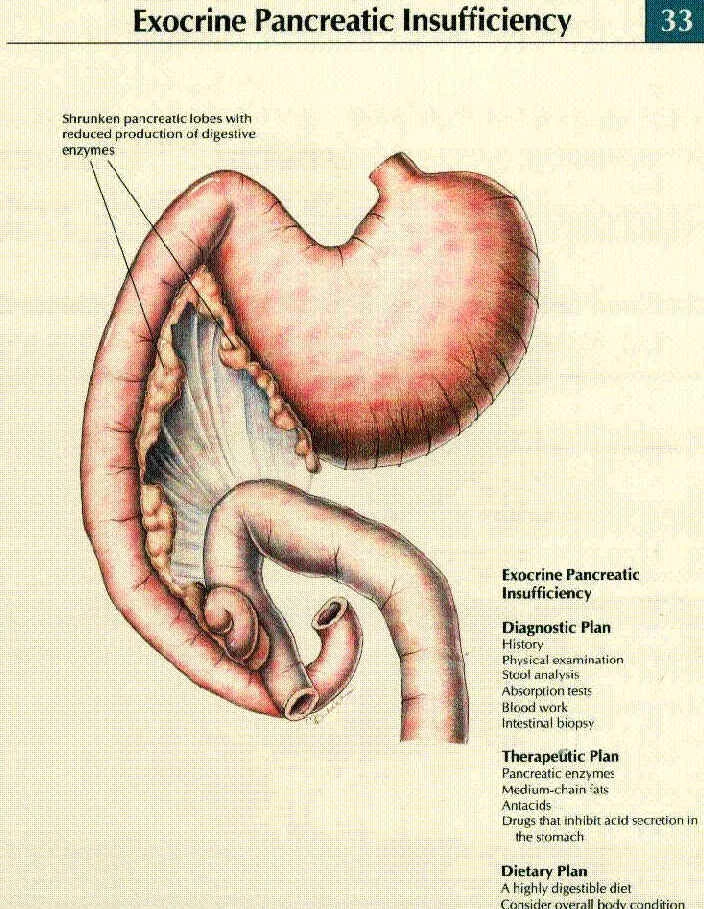



Exocrine Pancreatic Insufficiency Canine Diabetes Wiki Fandom
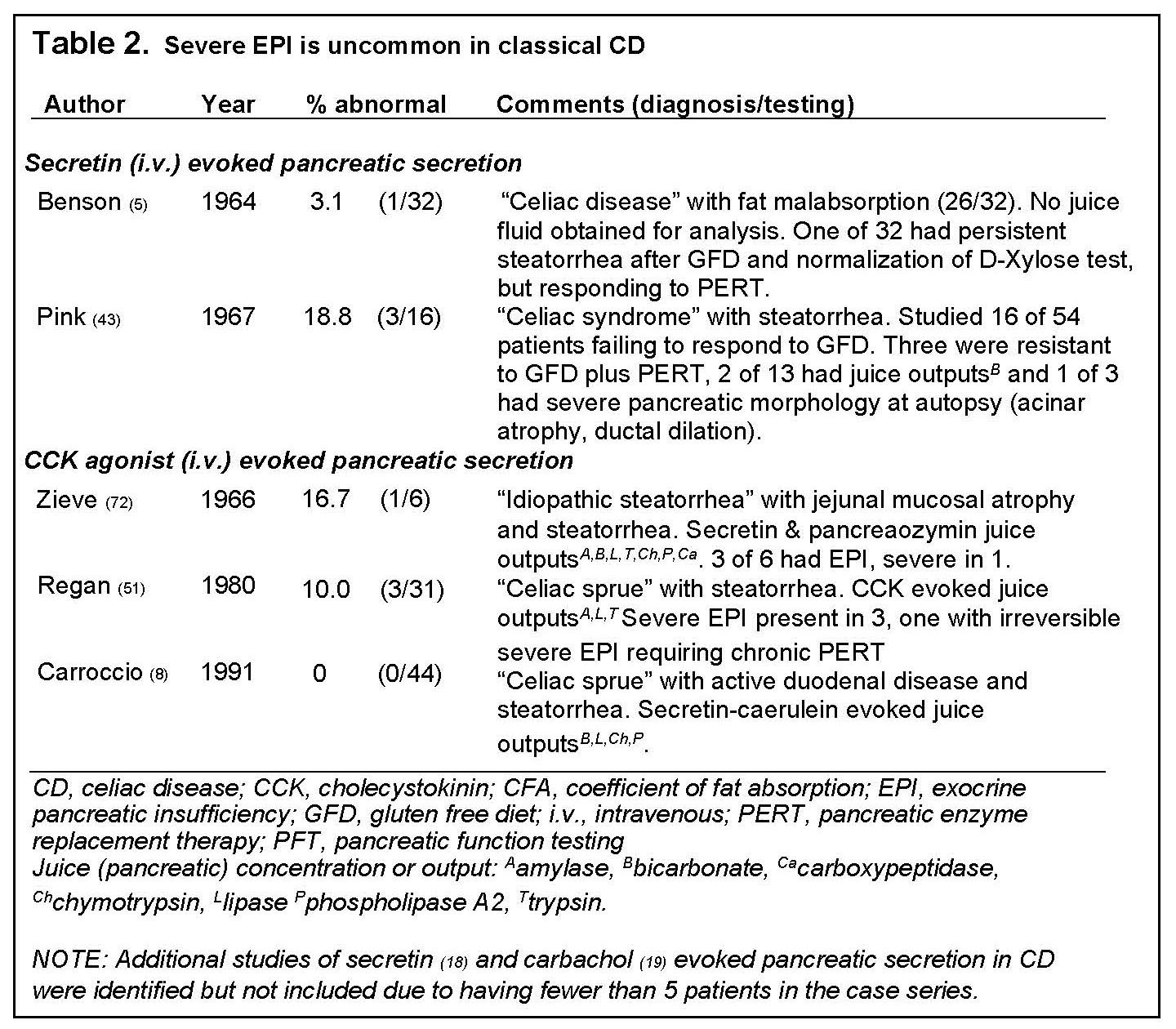



Exocrine Pancreatic Insufficiency And Pancreatitis Associated With Celiac Disease Pancreapedia
What are the causes of pancreatic exocrine insufficiency?Exocrine Pancreatic Insufficiency (EPI) is a condition that occurs in people who cannot digest food normally because their pancreas does not make enough enzymes As a result, people with EPI suffer from one or more troublesome gastrointestinal (GI) issues 1Exocrine pancreatic insufficiency develops in 50–80% of adults after a diagnosis of 56 to 131 years 74, 75 The exact prevalence of EPI in pediatric CP is unknown, but 34% of children with CP in the INSPPIRE cohort were exocrine pancreatic insufficient at the time of enrollment 43 Typically, the diagnosis of CP is made prior to the




Pancreatic Exocrine Insufficiency Diagnosis And Treatment Dominguez Munoz 11 Journal Of Gastroenterology And Hepatology Wiley Online Library
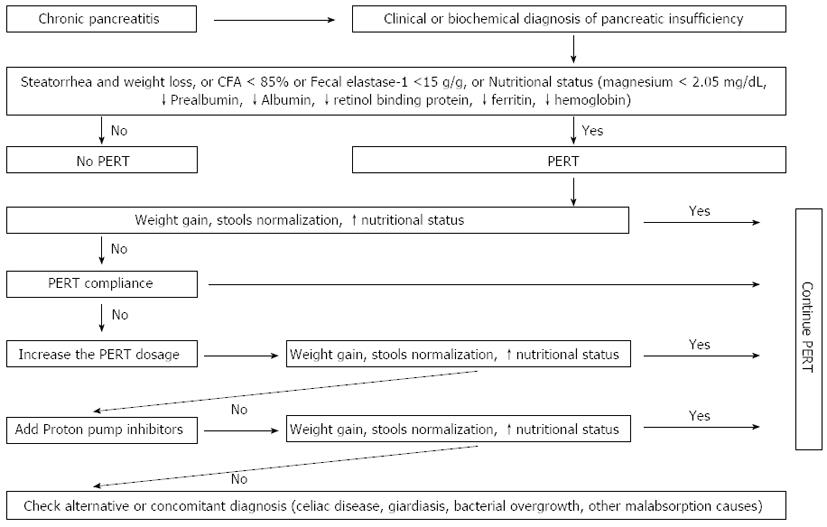



Exocrine Pancreatic Insufficiency In Adults A Shared Position Statement Of The Italian Association For The Study Of The Pancreas
EPI can happen when your pancreas isn't making enough digestive enzymes to break down the food you eat Symptoms of EPI include diarrhea gas bloating stomach pain oilyWhen you have Exocrine Pancreatic Insufficiency (EPI), your body is missing the enzymes it needs to digest food, which causes important nutrients to pass through the body unabsorbed 2 This can lead to a number of signs and symptoms that may vary from person to person People with EPI may have one, two, or several of the symptoms listedExocrine Pancreatic Insufficiency Symptoms Explained As the nutrients are no longer assimilated properly by the body, the sensation of saturation after eating disappears This issue explains the increased appetite of the dog, and the fact that he is always hungry The rapid weight loss is also explained by the inability to absorb the nutrients




Symptoms And Tests Used In The Diagnosis Of Exocrine Pancreatic Download Table




Practical Guide To Exocrine Pancreatic Insufficiency Breaking The Myths Topic Of Research Paper In Clinical Medicine Download Scholarly Article Pdf And Read For Free On Cyberleninka Open Science Hub
Exocrine pancreatic insuffency in 15 after having a severe reaction to premarin estergen cream then 2 weeks later i had an even more sever reaction to an infusion of reclast it is a biphosphonates l am severly allergic to phosphates,dr did not check for thati had diarrhea lost lbs destroyed 90 % of my pancreas dr gave me creon 3600 2 withExocrine pancreatic insufficiency Exocrine pancreatic insufficiency is an under recognized complication of pancreatic disease 13 While patients with advanced exocrine pancreatic insufficiency usually present with abdominal pain and steatorrhea, those with less severe insufficiency may only have mild symptomsSymptoms of exocrine pancreatic insufficiency may include Abdominal pain or tenderness;




Indirect Diagnostic Tests For Evaluating Pancreatic Exocrine Insufficiency Download Table




Introduction And Practical Approach To Exocrine Pancreatic Insufficiency For The Practicing Clinician Othman 18 International Journal Of Clinical Practice Wiley Online Library
Anything which affects your pancreas can cause pancreatic exocrine insufficiency, for example acute or chronic pancreatitis, pancreatic surgery, cystic fibrosis or even pancreatic cancer Other conditions such as gastricbypass surgery and coeliac disease are also associated with PEIExocrine pancreatic insufficiency (EPI) makes it difficult to digest food because of a deficiency of the exocrine pancreatic enzyme Symptoms include fat in stools, weight loss, diarrhea, fatigue, gas, abdominal distention, swelling, anemia, and othersBad smelling bowel movements;




Diagnosis Exclusion Of Canine Exocrine Pancreatic Insufficiency Epi Ppt Video Online Download




Exocrine Pancreatic Insufficiency And Pancreatic Enzymes Mission Cure
What is pancreatic exocrine insufficiency (PEI) Pancreatic Exocrine Insufficiency (PEI) is a condition that causes problems in how you digest food Your pancreas doesn't make enough of the enzymes that your body needs to break down and absorb nutrients Enzymes speed up chemical reactions in the bodyWhen the pancreas doesn't produce enough enzymes, it can create symptoms that mimic irritable bowel syndrome Dr Alejandro Suarez says it's really EPIFieker A, Philpott J, Armand M Enzyme replacement therapy for pancreatic insufficiency present and future Clin Exp Gastroenterol 11; 4 Sarner M Treatment of pancreatic exocrine deficiency World J Surg 03;27(11) 5 The Expert Committee on the Diagnosis and Classification of Diabetes Mellitus Report of the expert
/exocrine-pancreatic-insufficiency-4177936-821-618578bea845406fa96c78167aff8657.png)



Exocrine Pancreatic Insufficiency Symptoms Causes And Diagnosis
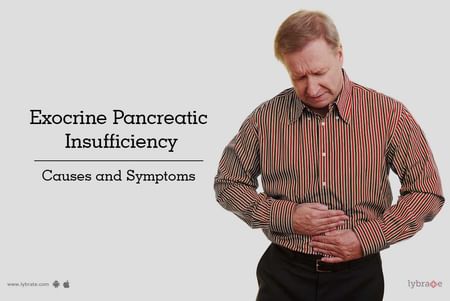



Exocrine Pancreatic Insufficiency Causes And Symptoms By Dr Chetan B Mahajan Lybrate
Regardless of its cause, the signs associated with exocrine pancreatic insufficiency are usually obvious and fit a distinct pattern The cat loses weight, seems constantly hungry, and has high volumes of loose or semiformed stools The stool may have a foul odor The high amount of fat in the stool may make the anal area and coat appear greasySigns and symptoms Loss of pancreatic enzymes leads to maldigestion and malabsorption, which may in turn lead to anemia ( Vitamin B12, iron, folate deficiency) bleeding disorders ( Vitamin K malabsorption) edema ( hypoalbuminemia) fatigueIf you have exocrine pancreatic insufficiency (EPI), your body cannot properly digest fats, proteins, and carbohydrates in the food you eat In addition to preventing adequate digestion, EPI produces uncomfortable gastrointestinal (GI) symptoms Only your doctor can tell if your GI symptoms are due to EPI or another digestive condition
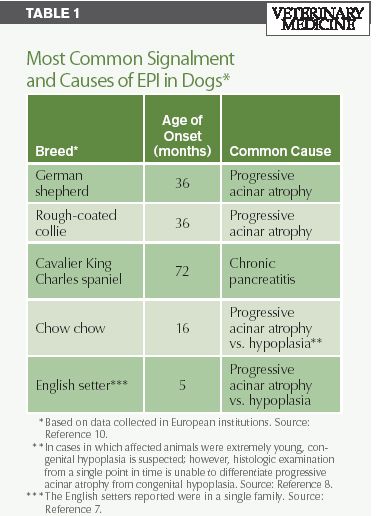



A Quick Review Of Canine Exocrine Pancreatic Insufficiency




Exocrine Pancreatic Insufficiency Clinical Gastroenterology And Hepatology
Philips, M (15) Pancreatic exocrine insufficiency following pancreatic resection Pancreatology, 15, pp Sikkens EC, Cahen DL, de Wit J, et al (14) A prospective assessment of the natural course of the exocrine pancreatic function in patients with a pancreatic head tumor Journal of Clinical Gastroenterology, 48, pp 43–6Gas and bloating People with EPI cannot properly digest the food they eat, which can result in uncomfortable symptoms like gas and bloating Stomach pain Fat maldigestion due to EPI can lead to gas, bloating, and stomach pain Foulsmelling, greasy stools (steatorrhea)The purpose of the study is collecting information on the effect of CREON on the symptoms of exocrine pancreatic insufficiency The research explained below deals with the collection and use of data only and is not designed for drug testing




Pdf Pancreatic Exocrine Insufficiency Diagnosis And Treatment In Chronic Pancreatitis And Pancreatic Cancer Semantic Scholar
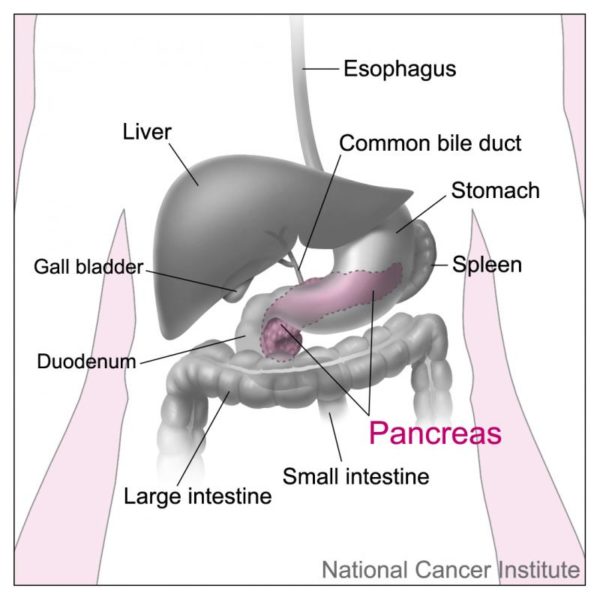



Pancreatic Insufficiency Lab Tests Online
Dr Rudert answers questions on this often misdiagnosed disorder What are the symptoms of EPI (Exocrine Pancreatic Insufficiency)?Exocrine pancreatic insufficiency (EPI) is defined by a deficiency of exocrine pancreatic enzymes resulting in an inability to maintain normal digestion This inadequate digestion with nutrient and, especially, fat malabsorption occurs when intraduodenal levels of lipase fall below 5–10% of normal enzyme output 1 , leading to pancreatic steatorrhea, weight loss, and aWhat are the symptoms of pancreatic insufficiency?
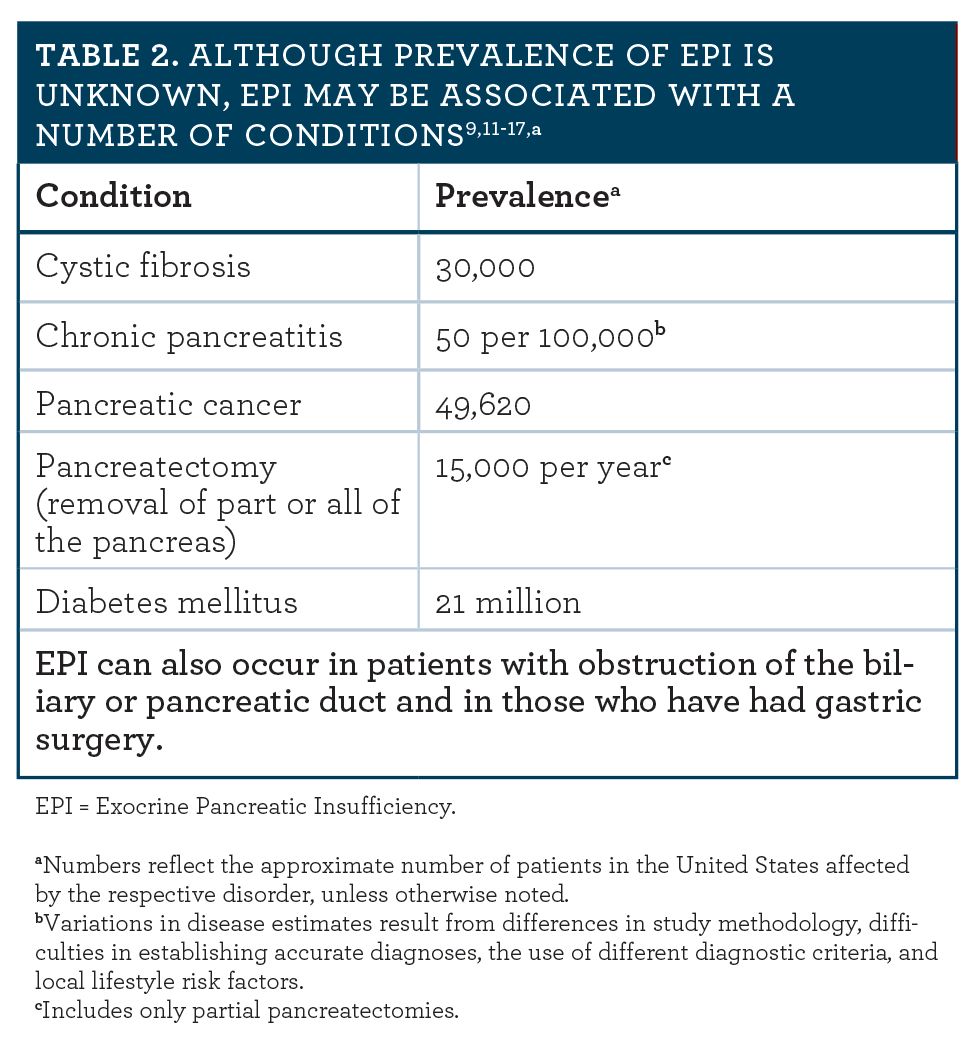



Pancreatic Enzyme Replacement Therapy A View From Behind The Counter
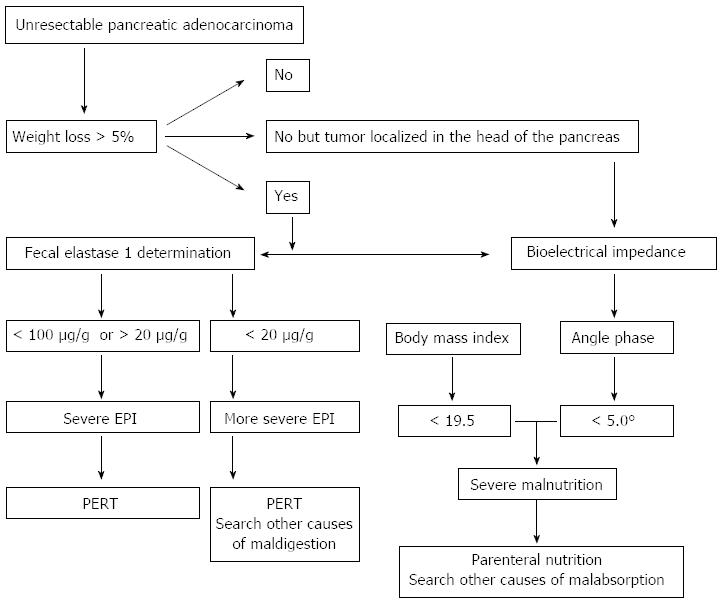



Exocrine Pancreatic Insufficiency In Adults A Shared Position Statement Of The Italian Association For The Study Of The Pancreas
The many types of pancreatic cancer can be divided into two general groups The vast majority of cases (about 95%) occur in the part of the pancreas that produces digestive enzymes, known as the exocrine componentSeveral subtypes of exocrine pancreatic cancers are described, but their diagnosis and treatment have much in commonLearn about Exocrine Pancreatic Insufficiency (EPI) EPI is the medical term for a condition that occurs when the pancreas doesn't produce enough digestive enzymes As a result, the body cannot properly digest food into nutrients, which can lead to malabsorption 2Symptoms of Exocrine Pancreatic Insufficiency in Dogs This condition causes digestive and stomach problems leading to intestinal overgrowth of bacteria Weight loss even though your dog seems to eating plenty or has an increased appetite Coprophagia which is a condition which causes your dog to eat its own stool




Pdf Pancreatic Exocrine Insufficiency Diagnosis And Treatment In Chronic Pancreatitis And Pancreatic Cancer Semantic Scholar




Improving Future Studies In Chronic Pancreatitis A Paradigm Shift In Our Understanding Gut
Swollen or cracked tongue EPI can also lead to a number of vitamin deficiencies According to the Cleveland Clinic, vitamin D deficiency can cause soft, weak bones, which can cause pain andYou should call your healthcare provider if you experience Extreme fatigue or dizziness Oily stools Signs of malnutrition Unexpected weight lossWhen you have EPI, you don't get the nutrition you need because your body can't absorb fats and some vitamins and minerals from foods You might lose weight or have pain in your belly There are




Management Of Exocrine Pancreatic Insufficiency In Children Sankararaman 19 Nutrition In Clinical Practice Wiley Online Library




Exocrine Pancreatic Insufficiency Know Symptoms Of It By Dr Sanjoy Basu Lybrate
Diarrhea EPI can cause problems with undigested food movingtoo quickly through the digestive tract Gas and bloating Stomach pain Foulsmelling, greasy stools (steatorrhea) Weight loss One may also ask, can exocrine pancreatic insufficiency disappear?Pancreatic exocrine insufficiency diagnosis and treatment J Gastroenterol Hepatol 11 Mar;26 Suppl 2126 View Abstract Toouli J, et al Management of pancreatic exocrine insufficiency Australasian Pancreatic Club recommendations Med J Aust 10 Oct 18;193(8)4617Exocrine pancreatic insufficiency (EPI) is a syndrome caused by insufficient synthesis and secretion of digestive enzymes by the exocrine portion of the pancreas EPI is less common than pancreatitis in both dogs and cats, but it is the second most common exocrine pancreatic




Pancreatic Exocrine Insufficiency Guideline Working Party Guideline Algorithm Guidelines




Exocrine Pancreatic Insufficiency Epi In Humans Info For Hcps
Symptoms of pancreatic insufficiency include Fat in stools Bulky stools that float in the water and are difficult to flush Stools may appear pale and oily Stools may be foulsmelling Weight loss Diarrhea (may be watery) Fatigue Gas ( flatulence ),




What Is Exocrine Pancreatic Insufficiency Everyday Health
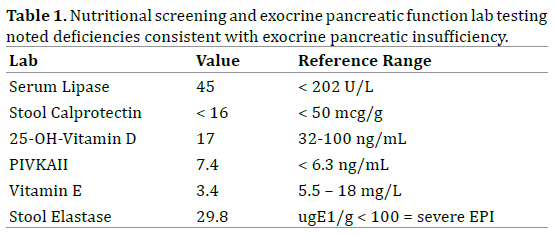



Johanson Blizzard Syndrome Expanding The Phenotype Of Exocrine Pancreatic Insufficiency Insight Medical Publishing
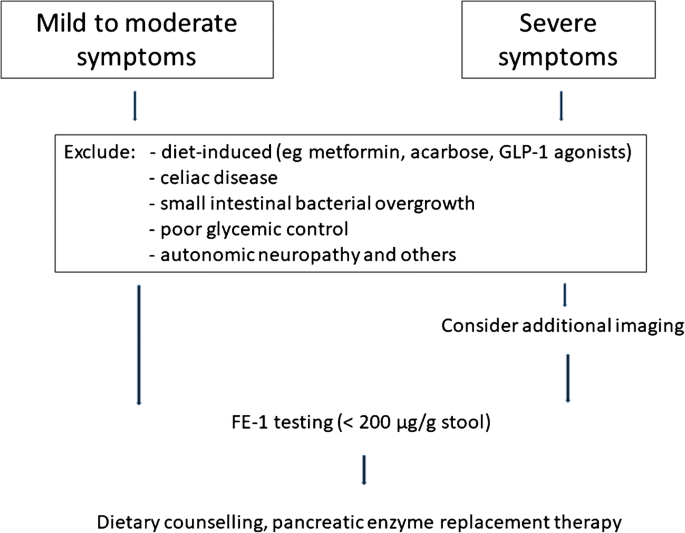



Exocrine Pancreatic Insufficiency In Type 1 And Type 2 Diabetes Springerlink




Animation Exocrine Pancreatic Insufficiency Epi




5 Ways To Prevent Pancreatitis And Epi Everyday Health



1




Exocrine Pancreatic Insufficiency Diagnosis And Management Youtube




Who S At Risk Of Exocrine Pancreatic Insufficiency Infographic Everyday Health




Symptoms Of Exocrine Pancreatic Insufficiency Epi Treatment




A Primer On Exocrine Pancreatic Insufficiency Fat Malabsorption And Fatty Acid Abnormalities




Epi Symptoms Bloating Diarrhea And More




Pancreatic Exocrine Insufficiency Pei And Pancreatic Enzyme Replacement Therapy Pert Guts Uk
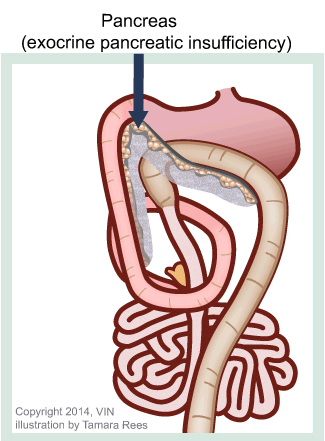



Exocrine Pancreatic Insufficiency Mar Vista Animal Medical Center




Pancreatic Malnutrition In Children Pediatric Annals




Symptoms Of Exocrine Pancreatic Insufficiency Everyday Health




Exocrine Pancreatic Insufficiency Youtube



2




Causes Of Exocrine Pancreatic Insufficiency Everyday Health
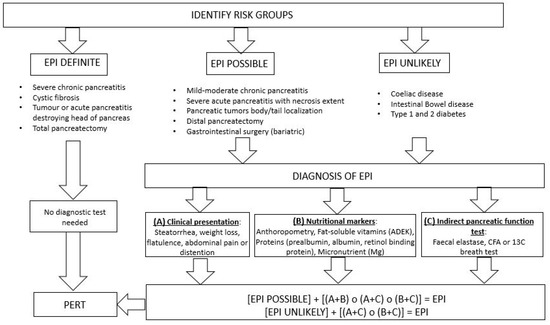



Medicina Free Full Text State Of The Art In Exocrine Pancreatic Insufficiency Html




Prevalence Of Exocrine And Endocrine Pancreatic Insufficiency After Download Table
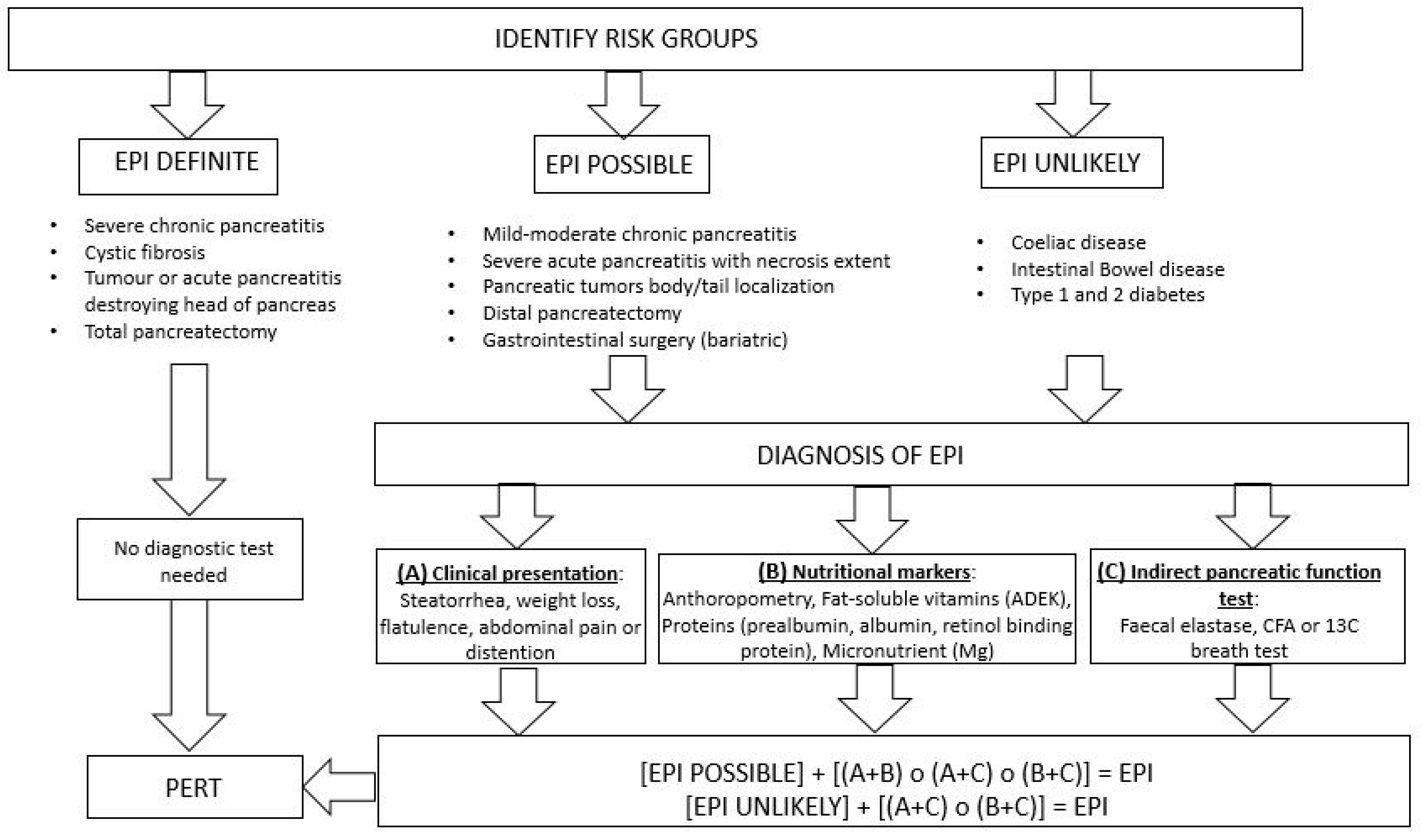



Medicina Free Full Text State Of The Art In Exocrine Pancreatic Insufficiency Html
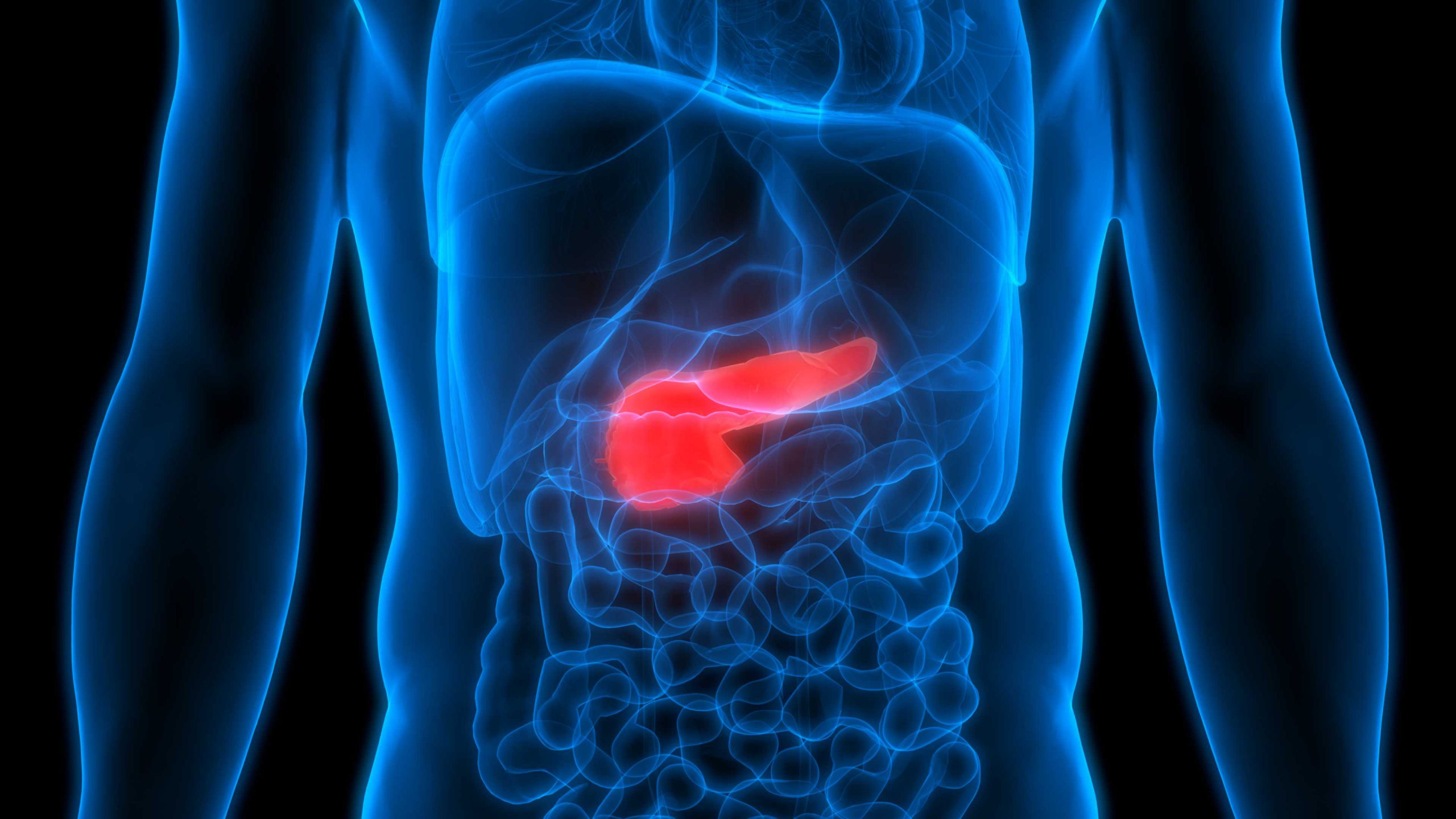



Exocrine Pancreatic Insufficiency Causes Diagnosis Treatment



1




Introduction And Practical Approach To Exocrine Pancreatic Insufficiency For The Practicing Clinician Othman 18 International Journal Of Clinical Practice Wiley Online Library




Pancreatic Cancer Symptoms Causes And Treatment
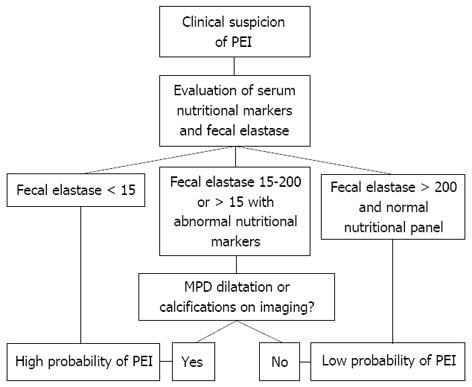



Diagnosis And Treatment Of Pancreatic Exocrine Insufficiency




Exocrine Pancreatic Insufficiency What It Is And Who S At Risk




Identify Epi In Your Patients Information For Hcps




Exocrine Pancreatic Insufficiency In Type 1 And Type 2 Diabetes Mellitus Do We Need To Treat It A Systematic Review Sciencedirect



Skin Signs Of




Exocrine Pancreatic Insufficiency In Dogs And Cats Veterinary Partner Vin




Chronic Pancreatitis Diagnosis And Treatment American Family Physician




Pin On Bridal Shower
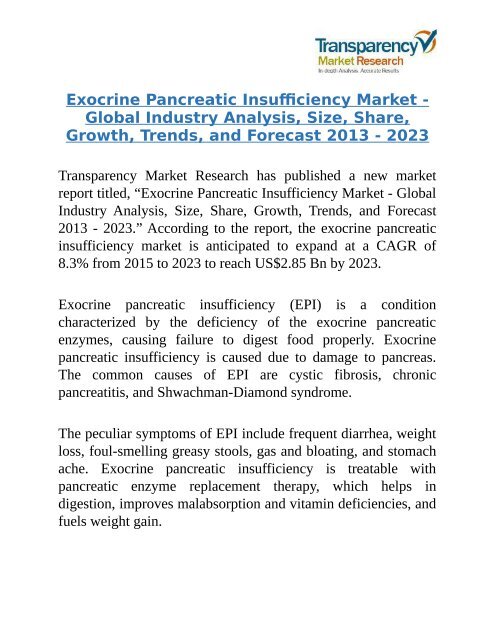



Exocrine Pancreatic Insufficiency Market




A Primer On Exocrine Pancreatic Insufficiency Fat Malabsorption And Fatty Acid Abnormalities




Exocrine Pancreatic Insufficiency




Pin On Bsf




Fyrtorr What Is Epi Exocrine Pancreatic Insufficiency Milled




Pdf Less Common Etiologies Of Exocrine Pancreatic Insufficiency Semantic Scholar




Current Challenges In Exocrine Pancreatic Insufficiency A Multi Perspective Discussion Transcript
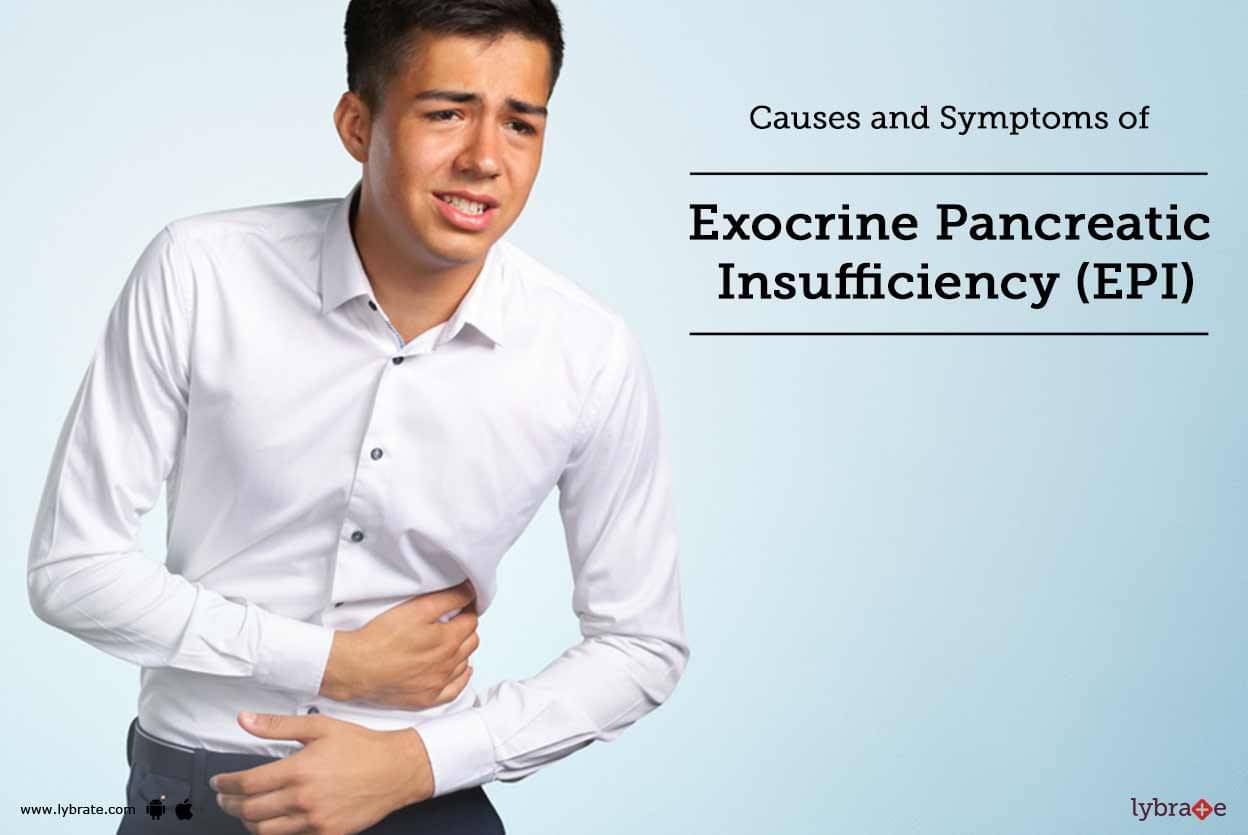



Causes And Symptoms Of Exocrine Pancreatic Insufficiency Epi By Dr Vijay Rai Lybrate
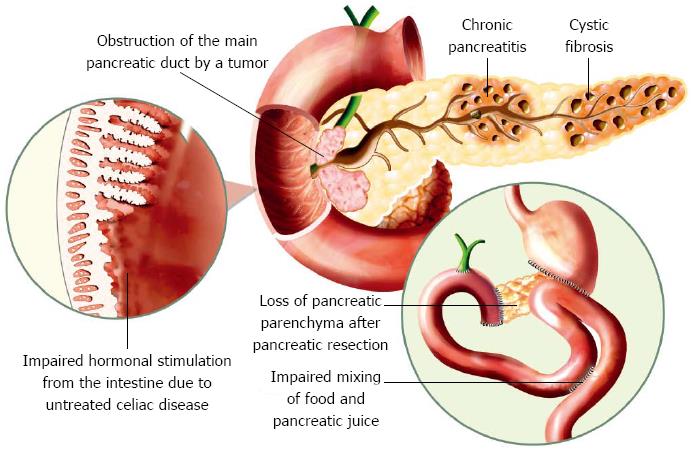



Diagnosis And Treatment Of Pancreatic Exocrine Insufficiency




Diagnostic Performance Of Measurement Of Fecal Elastase 1 In Detection Of Exocrine Pancreatic Insufficiency Systematic Review And Meta Analysis Clinical Gastroenterology And Hepatology




Lesson Exocrine Pancreatic Insufficiency



Pancreatic Exocrine Insufficiency Pei Canadian Digestive Health Foundation




Epi Symptoms Official Creon Pancrelipase Hcp Site




Pdf Clinical Profile And Management Of Pancreatic Exocrine Insufficiency In Patients With Chronic Pancreatitis In India Semantic Scholar
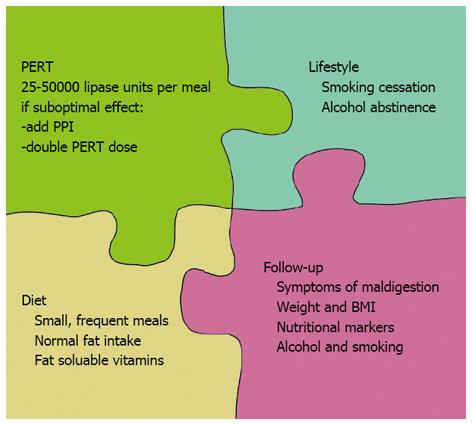



Diagnosis And Treatment Of Pancreatic Exocrine Insufficiency




What Is Exocrine Pancreatic Insufficiency Ben S Natural Health
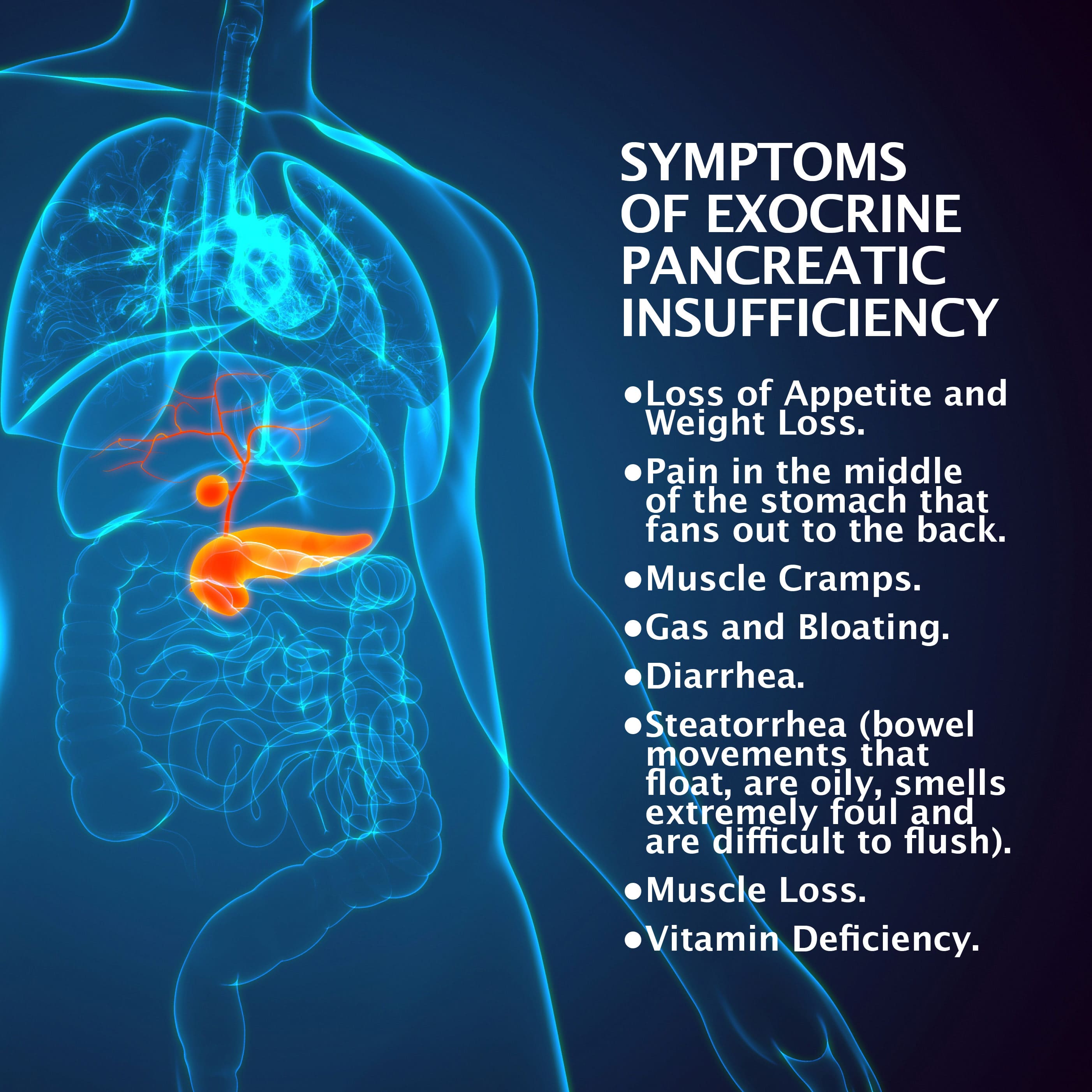



What Is Exocrine Pancreatic Insufficiency




Pdf Less Common Etiologies Of Exocrine Pancreatic Insufficiency Semantic Scholar




Largest Analysis Examining Barriers To Epi Diagnosis Finds Patients With Digestive Health Issues Overlook Their Symptoms



Pancreatic



2




Epi Symptoms Bloating Diarrhea And More




Slide Show Exocrine Pancreatic Insufficiency Epi




Slide Show Exocrine Pancreatic Insufficiency Epi




Pancreatic Insufficiency An Overview Sciencedirect Topics




Know More About Exocrine Pancreatic Insufficiency Epi Therapeutics And Diagnostics Market By Manufacturers Regions Type And Application Forecast To 23 Medgadget




Exocrine Pancreatic Insufficiency Prevalence Diagnosis And Manageme Ceg
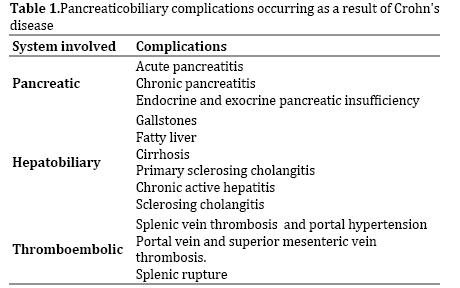



Crohn S Disease And Acute Pancreatitis A Review Of Literature Insight Medical Publishing




Pancreatic Exocrine Insufficiency Correct Body Maintenance




Exocrine Pancreatic Insufficiency Diet
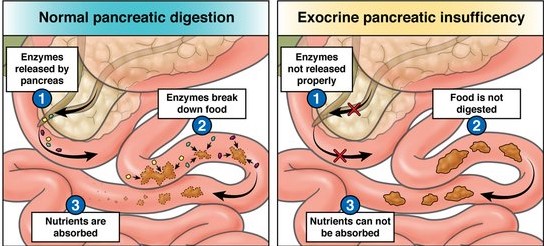



Aga Releases New Epi Patient Education Page American Gastroenterological Association




Measuring Pancreatic Elastase To Diagnose Pancreatic Disease Alpco




Pancreatic Exocrine Insufficiency Pei Canadian Digestive Health Foundation




Pdf Exocrine Pancreatic Insufficiency In Adults A Shared Position Statement Of The Italian Association For The Study Of The Pancreas




Human Pancreatic Exocrine Response To Nutrients In Health And Disease Gut
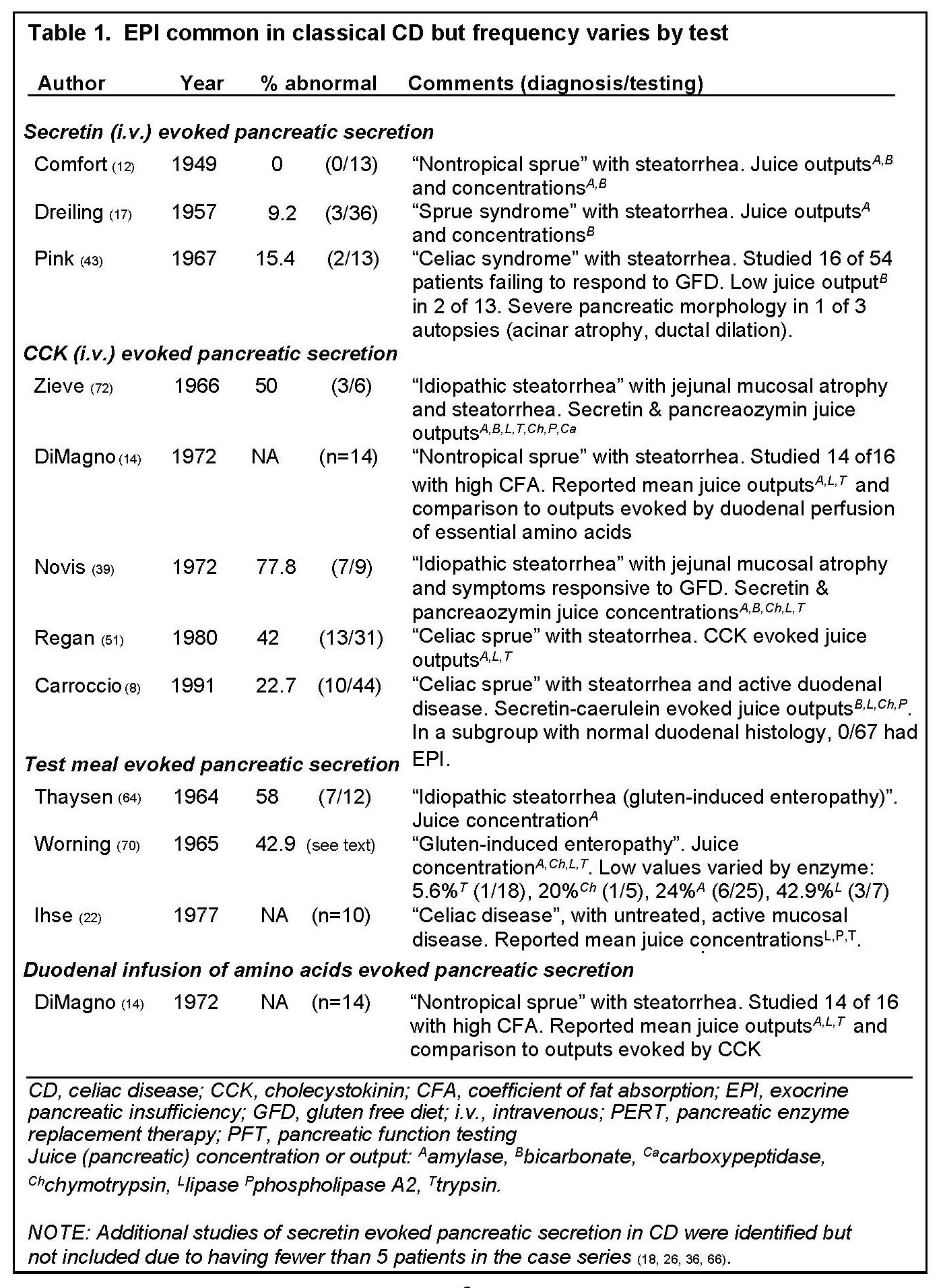



Exocrine Pancreatic Insufficiency And Pancreatitis Associated With Celiac Disease Pancreapedia




Causes Of Pancreatic Insufficiency Download Table




Symptoms And Tests Used In The Diagnosis Of Exocrine Pancreatic Download Table




Diagnosis And Management Of Exocrine Pancreatic Insufficiency Semantic Scholar




Exocrine Pancreatic Insufficiency In Dogs Vca Animal Hospital




Pin On Health



Pancreatic Exocrine Insufficiency Pei Canadian Digestive Health Foundation
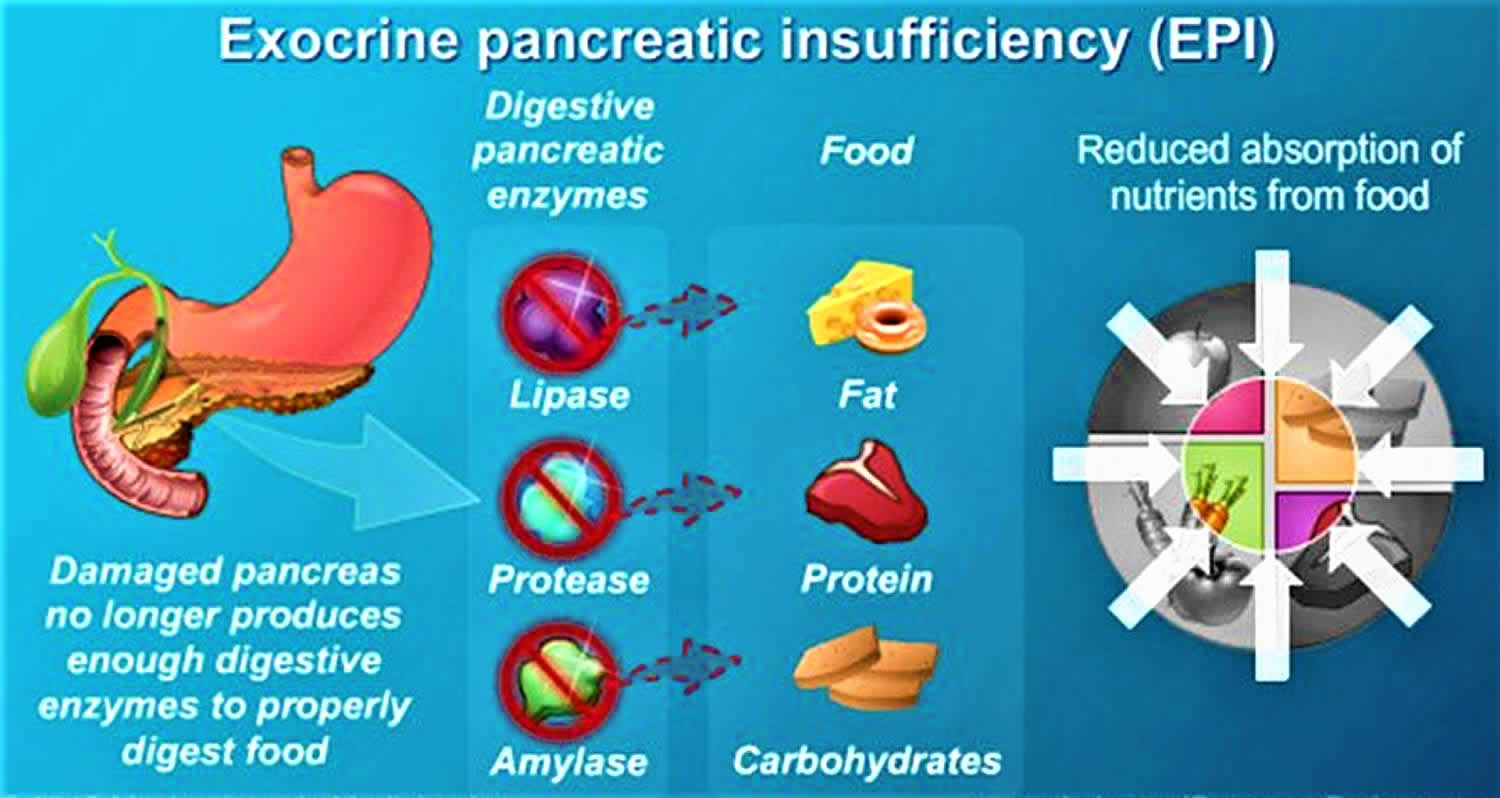



Exocrine Pancreatic Insufficiency Causes Symptoms Diagnosis Treatment




Nurturing A Healthier You With Exocrine Pancreatic Insufficiency




Slide Show Exocrine Pancreatic Insufficiency Epi
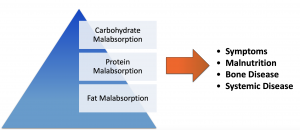



Exocrine Pancreatic Insufficiency And Pancreatic Enzymes Mission Cure
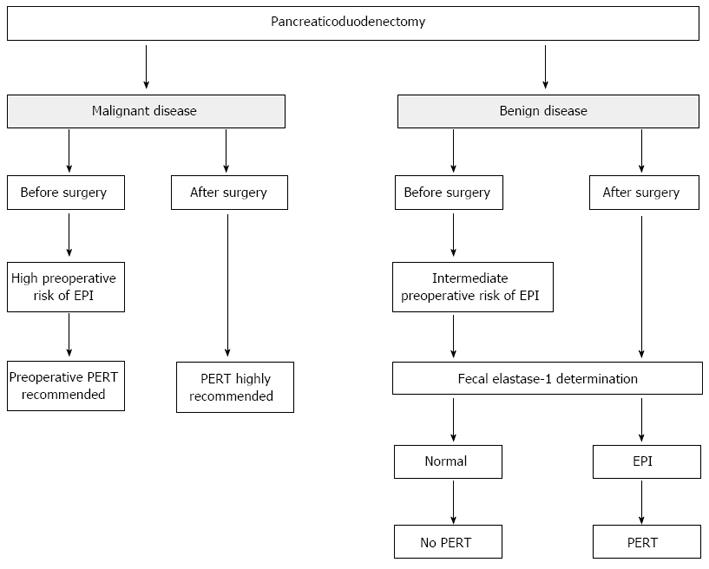



Exocrine Pancreatic Insufficiency In Adults A Shared Position Statement Of The Italian Association For The Study Of The Pancreas
コメント
コメントを投稿